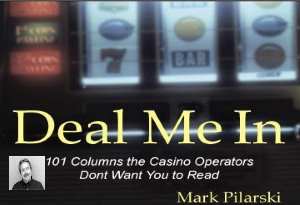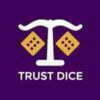My favorite slot to play is video keno. I’ve been playing them since their inception. I find I win more than a live keno game, besides, they don’t offer a live game anymore where I play. Now, video keno is no longer available. I complained, and I was told they were no longer profitable. How can a slot machine not be profitable? Was I being told the straight story? Alice J.
To begin with, Alice, you are correct in your assessment that video keno is a better play than that of a live keno game. For a live keno game the medium house edge is 28%, whereas with video keno it is 7.5%. And although video keno does have better paytables for the player, even at 7.5%, it still should be an overall winner for the house.
I think what they meant, Alice, by no longer “profitable,” is that all machines need to show reasonable results or their replacement is inevitable. A gaming machine’s performance is measured by two factors: the amount of coins wagered daily (“coin in”) and the amount collected daily by the casino (“win”). My guess is that the video keno machines’ performance faltered, possibly due to lack of play, so the slot manager decided a change was needed in the slot mix. Out went video keno.
Another potential problem with video keno, at least in the slot manager’s eyes, is that far too many players play just one coin at a time. Furthermore, the game itself takes longer to play than just yanking the handle of a slot machine. Tallied together, you’re making smaller and fewer bets per hour on video keno than you would on a comparable reel slot machine, which also can make them overall less “profitable” for the casino.
Great column last week on Spanish 21. I tried it for the first time this weekend, I liked it, and even won a little money. You forgot to mention it in your column, but the game also offers a pretty neat surrender feature when doubling down. You might want to pass that along to your readers. Tom S
Yes, Tom, some of Spanish 21’s player-friendly rules are doubling down on two or more cards, double downs up to four times after splits, and the “double down rescue” that I failed to cite.
If you happen get hit with a stiff (an undesirable card) on a double down and are not satisfied with it, you can double-down rescue (aka, surrender, forfeit or concede) part of the hand. Here the dealer takes the original bet and you retain the double portion of the wager.
For example, suppose you are dealt an 11 against a dealer’s 9 and you choose to double down. You draw a 4, putting you on a 15 and on tenterhooks for a dealer bust. Double down rescue allows you to surrender your primary wager and keep the double down portion
If one is not a card counter and simply plays correct basic strategy, Is there any disadvantage to a table employing continuous shuffle machines? I do not like these units, but cannot come up with any concrete reason why they should put me at a disadvantage versus dealing from a shoe. Cliff M.
I’ve written time and again on this subject, Cliff. Possibly you missed it, but the “concrete reason” is that continuous shufflers hurt all players because the dealer never stops to shuffle, meaning, you’ll see an increased number of hands dealt per hour, yielding a richer opportunity for the built-in casino advantage to work against your wallet.
Gambling Wisdom of the Week: “It’s (gambling’s) fun, exciting, it only sucks when you lose.” –Charles Barkley




















